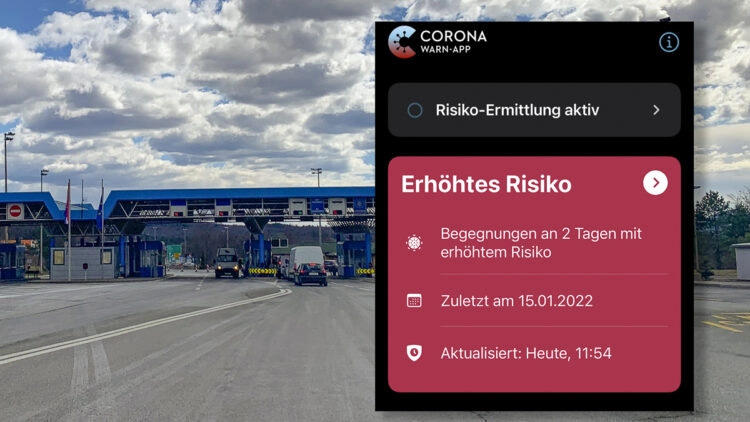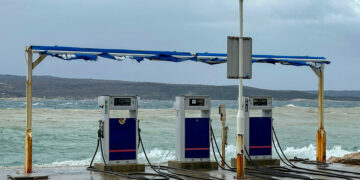Here again in plain text the requirements for entry to Croatia: Digital COVID-19 certificate of the EU is sufficient! Travelers confirm the now-practiced practice at the Croatian borders: “The Croats just wave through.”
In order to facilitate entry to Croatia, among other countries, in times of the Corona pandemic, the EU member states have drawn up Corona rules in the form of general recommendations for travel, which will of course also be valid for Croatia, Italy, Germany, Slovenia and Austria from February 1, 2022, and are intended to guarantee a certain degree of freedom of movement with a Corona passport. But mind you, these are recommendations that – as is so often the case in the EU – do not necessarily have to be implemented in national law immediately. Therefore, it is still advisable to take a look at the current entry requirements of the destination country before traveling, so that the vacation trip does not end at the border.
Positive message for all travelers
In general, however, a positive message can be proclaimed for all travelers to Italy, Croatia, Slovenia, Austria or Germany: The 27 member states of the EU are working toward a uniform travel regime, no matter how long the pandemic will last. A high level of immunization against the coronavirus, either by vaccination or after surviving the disease, has made this step possible. However, because health policy ultimately falls largely within the jurisdiction of individual EU member states, this is a recommendation.
EU Corona certificate decisive
In general, however, one may already speak of a paradigm shift in this regard: A valid EU Corona certificate will be more important in the future than the infection incidence in the country of departure or destination, if the recommendations are implemented in national law. In plain language, this means that no matter how high the incidence levels may be in the country of departure, the EU Corona certificate for vaccinated or recovered persons will open the (virtual) barrier. Or even simpler: Those who are verifiably vaccinated or recovered can, according to the will of the EU, enjoy the new freedom to travel in the EU member states; for all others, the testing obligation continues to apply.
Proofs needed for entry
What proofs are needed for the Corona passport? The easiest way is through vaccination. Already 14 days after the last prick to complete vaccination, one receives the coveted paper. But also a PCR test at the earliest 72 hours before departure or a rapid test 24 hours before departure are sufficient. It should also be possible to take the corresponding tests after arrival, so that annoying border controls with long waiting times will probably no longer be necessary in the future.
The EU Commission responsible also provides the justification for relaxing the measures: Because omicron is currently the dominant variant in most EU countries, the member states should examine whether travel restrictions should still be maintained, as they would make travel throughout the EU more difficult. In other words, if Germany or Austria have incidence levels as high as Italy, Slovenia, or Croatia, for example, travel restrictions no longer make sense for these countries.
Incoming Italy
Italy has already responded accordingly, requiring either proof of vaccination or convalescence or a negative corona test for entry into Italy. Until Feb. 1, 2022, all travelers entering Italy were required to carry a negative test, even if they were vaccinated or recovered.
Entering Croatia
Croatia continues to require a Corona passport, which vaccinated or recovered persons generally can present, i.e., 2 G and PCR test or alternatively 2 G and booster vaccination. Croatian measures are in principle in line with EU requirements.
Entry Slovenia
The situation is currently still different for entry into Slovenia: Here, a negative PCR test is currently still required for twice-vaccinated persons; only persons with booster vaccination are exempt from testing.
Return Austria
For the return to Austria, the regulation 2 G + currently still applies to Austrians, that is, twice vaccinated must also show a PCR test, who is boostered, is thus considered exempt from the testing requirement.
Return journey Germany
When returning to Germany, the 3-G detection requirement generally applies. For more information, see the Corona Entry Rules in Brief.
Current incidence
Those who want to know the current situation in their destination should use the corresponding SeaHelp service. According to this, incidence values (7-day incidence) on February 2 were 1354.8 in Croatia, 1484.5 in Italy, and 4909.3 in Slovenia. In Germany, the 7-day incidence was 1,227.5, and in Austria, it was 2,571.6.
Learning to live with the pandemic
Against the background of almost identical incidence values, one can only agree with the EU Commission’s view that travel restrictions hardly make sense within Europe anymore. It can be assumed that the proposals of the EU Commission will be further implemented in the coming days. For vacationers with destination Croatia, Slovenia and Italy, this ultimately means: Those who have planned a vacation on their boat or yacht or are thinking about a charter vacation, can definitely continue these plans, because quite obviously Europe has learned to live with the pandemic.













